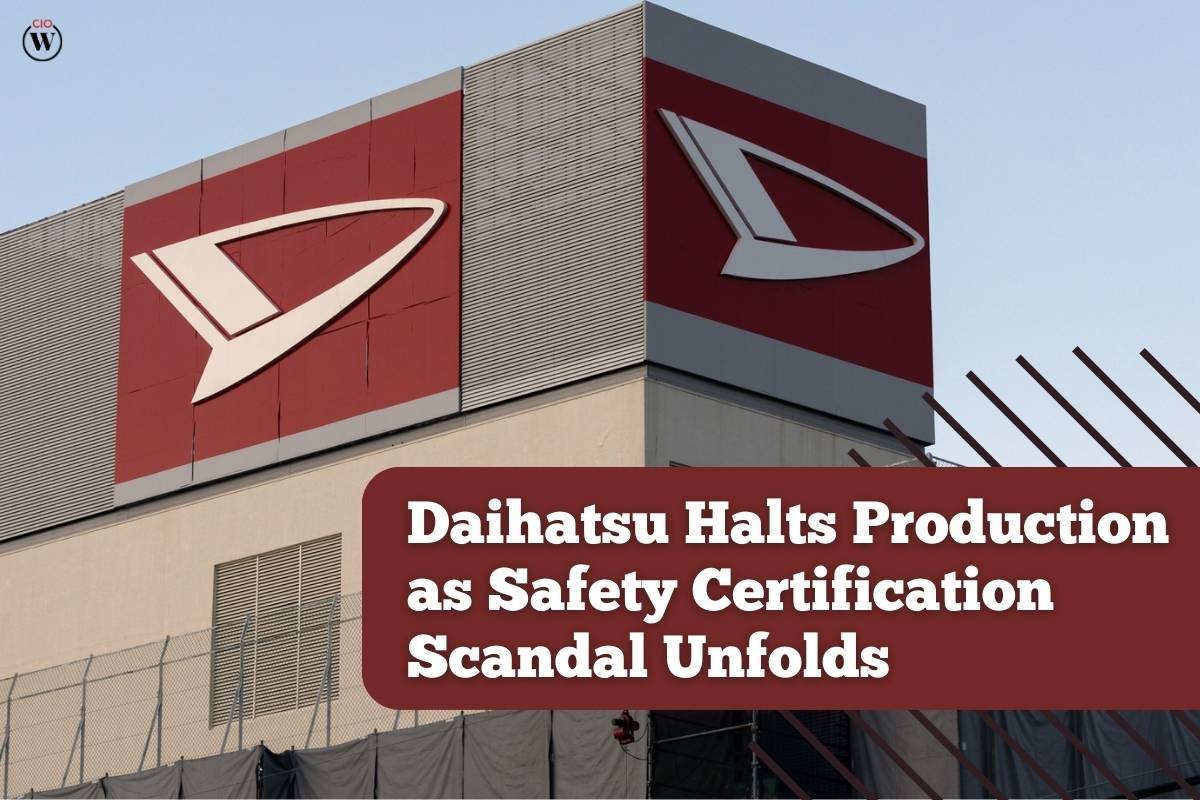Source – Bloomberg.com
In a major development, Daihatsu, a subsidiary of Toyota Motor Corp. and a key player in the Japanese automotive industry, has brought its production lines to a standstill at all four of its factories in Japan. The shutdown, effective as of Tuesday, follows the revelation of improper safety certification tests, leading to a deeper investigation by transport ministry officials. This drastic move comes just a week after Daihatsu Motor Co. suspended all vehicle shipments within and outside Japan upon discovering irregular testing practices involving a staggering 64 models. The fallout from this scandal is expected to have widespread implications for the automotive sector and local economies, impacting thousands of auto parts manufacturers and their employees.
Safety Certification Test Scandal Unearthed and its Ramifications
Earlier this year, safety test irregularities prompted an independent panel investigation, uncovering systemic issues at Daihatsu. The company, renowned for manufacturing Hijet trucks, vans, and Mira hatchbacks, initiated the shutdown of production lines across Shiga, Kyoto, and Oita prefectures, along with its headquarters in Osaka. The precise duration of the production halt remains uncertain, with media reports suggesting it could extend through at least January. Despite the gravity of the situation, no accidents or fatalities have been reported thus far due to the falsified safety tests.
Impact on Daihatsu, Toyota, and the Wider Automotive Network
Daihatsu, specializing in the production of small cars and trucks popular in Japan, is a crucial unit for Toyota. In the fiscal year 2022, the company assembled approximately 870,000 vehicles across its four plants. The ripple effect of this shutdown extends to the extensive supply chains of Daihatsu, encompassing 8,136 companies across Japan, with total sales amounting to a substantial 2.2 trillion yen ($15.53 billion), according to market research company Teikoku Databank.
As the suspension of shipments persists, concerns escalate regarding the potential impact on company earnings, employment, and the broader local economy. The scandal also implicates Toyota, with 22 models and an engine supplied by Daihatsu found to have undergone improper testing. The repercussions extend beyond Japan, affecting international sales of Toyota and Daihatsu models, as well as certain models from Mazda Motor Corp. and Subaru Corp. sold abroad.
In a press statement last week, Daihatsu President Soichiro Okudaira acknowledged the misconduct in safety testing and procedures, attributing it to undue pressure on workers to meet demanding development deadlines. As investigations continue, the automotive industry braces for the fallout from one of the most significant safety certification scandals to rock Japan in recent years.
Also Read: Ensuring the Safety and Security of Your Business







